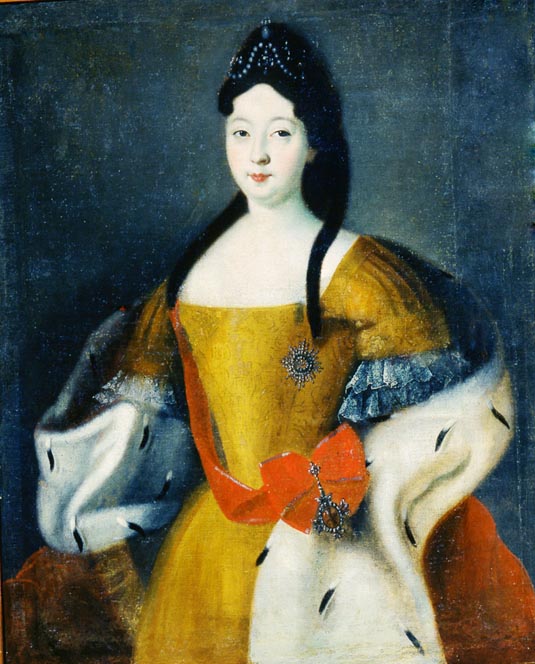Grand Duchess Anna Petrovna of Russia, born on January 27, 1708, in Moscow, was a significant figure in Russian history. As the eldest daughter of Peter the Great and Catherine I, Anna’s life was deeply intertwined with the political and dynastic intricacies of 18th-century Russia. Despite her short life, she left an indelible mark on Russian history, particularly through her son, Peter III, who later became Emperor of Russia. This article delves into the various facets of Anna Petrovna’s life, from her early years and education to her personal life and legacy.
Anna Petrovna Age, Birthday, Place, and Zodiac Sign
Anna Petrovna was born on January 27, 1708, in Moscow, Russia. Her zodiac sign was Aquarius, known for its traits of independence, intelligence, and humanitarianism. Anna’s birth into the heart of Russian royalty set the stage for a life marked by privilege, responsibility, and political significance.
Anna Petrovna Early Life
Anna Petrovna was the fourth child of Peter the Great and Catherine I, although she was the second daughter to survive infancy. Her early years were spent in the opulent palaces of Russia, where she was surrounded by the finest luxuries and received a comprehensive education. Despite being born out of wedlock, Anna and her sister Elizabeth were legitimized following their parents’ official marriage in 1712. This early period of her life was marked by the privileges and responsibilities of her royal status, as well as the political implications of her potential role in the future of Russia.
Also Read: A Great American Patriot, Lou Dobbs has passed away at age 78
Anna Petrovna Education
Anna Petrovna’s education was exceptional, reflecting her status as a member of the Russian royal family. She was groomed in the ways of the court and exposed to a broad spectrum of knowledge, including languages, literature, writing, embroidery, dancing, and etiquette. Anna was fluent in four foreign languages: French, German, Italian, and Swedish. Her education was designed to prepare her for a potential marriage to a foreign prince, which would help secure European allies for the Russian Empire.
Anna Petrovna Career Beginnings
Anna’s career beginnings were closely tied to her marriage to Charles Frederick, Duke of Holstein-Gottorp. The marriage, which took place on May 21, 1725, was part of Peter the Great’s strategy to forge alliances with European powers. As the Duchess Consort of Holstein-Gottorp, Anna played a significant role in the political landscape of the time. Her marriage contract included a clause that allowed her to retain her Russian Orthodox religion and stipulated that any daughters would be raised in the same faith. This marriage also had political implications, as it reserved the right for her son to be proclaimed as the heir to the Russian throne.
Also Read: Comedy Legend Bob Newhart passed away at the age of 94
Anna Petrovna Personal Life
Anna Petrovna’s personal life was marked by her marriage to Charles Frederick and the birth of their son, Peter Feodorovich, who later became Peter III of Russia. Despite the political nature of her marriage, Anna was known for her intelligence, beauty, and kind heart. She was described as a “beautiful soul in a beautiful body” and was considered more level-headed and intelligent than her younger sister, Elizabeth. Anna’s personal life was also influenced by her father’s ambitions and the political intrigues of the Russian court.
Anna Petrovna’s Engagement
Anna’s engagement to Charles Frederick, Duke of Holstein-Gottorp, was a significant event in her life. The marriage was arranged as part of Peter the Great’s efforts to secure European allies. Charles Frederick arrived in Russia in 1721 to get acquainted with his future wife and father-in-law. The marriage contract was signed on November 22, 1724, and the wedding took place on May 21, 1725. The marriage was marked by extravagant ceremonies and banquets, reflecting the importance of the union in the political landscape of the time.
Also Read: Naomi Pomeroy, Top Chef Judge & Celebrity Passed Away at the Age of 49
Anna Petrovna’s Religious and Political Views
Anna Petrovna was a devout member of the Russian Orthodox Church, and her marriage contract allowed her to retain her religion. Her political views were influenced by her father, Peter the Great, and the political intrigues of the Russian court. Anna’s marriage to Charles Frederick was part of a broader strategy to secure European allies and strengthen the Russian Empire. Despite the political nature of her marriage, Anna was known for her intelligence and kind heart, which endeared her to those around her.
Anna Petrovna Death and Cause
Anna Petrovna’s life was tragically short. She died on March 4, 1728, in Kiel, Duchy of Holstein-Gottorp, at the age of 20. The cause of her death was complications from childbirth, as she had given birth to her son, Peter Feodorovich, just a few weeks earlier. Anna’s death was a significant loss to the Russian royal family, and she was buried in the Peter and Paul Cathedral in St. Petersburg.
Also Read: Whitney Rydbeck, who played Roy in Friday The 13th Part VI: Jason Lives, sadly passed away
Conclusion
Grand Duchess Anna Petrovna of Russia lived a life marked by privilege, responsibility, and political significance. Despite her short life, she left a lasting legacy through her son, Peter III, who later became Emperor of Russia. Anna’s intelligence, beauty, and kind heart endeared her to those around her, and her contributions to Russian history continue to be remembered today.
FREQUENTLY ASKED QUESTIONS
Who was Anna Petrovna of Russia?
Anna Petrovna was the eldest daughter of Peter the Great and Catherine I of Russia. She was born on January 27, 1708, and played a significant role in Russian history through her marriage and her son, Peter III.
When was Anna Petrovna born?
Anna Petrovna was born on January 27, 1708, in Moscow, Russia.
Who were Anna Petrovna parents?
Anna Petrovna’s parents were Peter the Great, the Emperor of Russia, and Catherine I, the Empress of Russia.
What was Anna Petrovna zodiac sign?
Anna Petrovna’s zodiac sign was Aquarius.
Who was Anna Petrovna married to?
Anna Petrovna was married to Charles Frederick, Duke of Holstein-Gottorp.
Did Anna Petrovna have any children?
Yes, Anna Petrovna had one son, Peter Feodorovich, who later became Peter III, Emperor of Russia.
What languages did Anna Petrovna speak?
Anna Petrovna was fluent in French, German, Italian, and Swedish.
What was Anna Petrovna role in Russian history?
Anna Petrovna played a significant role in Russian history through her marriage, which helped forge alliances, and through her son, Peter III, who became Emperor of Russia.
How did Anna Petrovna die?
Anna Petrovna died on March 4, 1728, due to complications from childbirth.
Where is Anna Petrovna buried?
Anna Petrovna is buried in the Peter and Paul Cathedral in St. Petersburg, Russia.
What was Anna Petrovna early life like?
Anna Petrovna grew up in the opulent palaces of Russia, receiving a comprehensive education and being groomed for a potential marriage to a foreign prince.
What was Anna Petrovna education like?
Anna Petrovna received an exceptional education, learning literature, writing, embroidery, dancing, and etiquette, and becoming fluent in multiple languages.
What was Anna Petrovna personality like?
Anna Petrovna was known for her intelligence, beauty, and kind heart. She was described as a “beautiful soul in a beautiful body.”
What was the significance of Anna Petrovna marriage?
Anna Petrovna’s marriage to Charles Frederick was part of Peter the Great’s strategy to secure European allies for Russia.
What was Anna Petrovna legacy?
Anna Petrovna’s legacy includes her son, Peter III, who became Emperor of Russia, and the Order of Saint Anna, established in her honor.
What was the Order of Saint Anna?
The Order of Saint Anna was a Holstein and later Russian order of chivalry established by Anna’s husband in her honor.
Who was Anna Petrovna’s sister?
Anna Petrovna’s sister was Elizabeth, who later became Empress of Russia.
What was Anna Petrovna role in the Russian court?
Anna Petrovna played a significant role in the Russian court through her marriage and her potential to secure European alliances.
How did Anna Petrovna early illegitimacy affect her life?
Anna Petrovna’s early illegitimacy posed challenges for her marriage prospects, but she was later legitimized after her parents’ marriage.
What was Anna Petrovna relationship with her father, Peter the Great?
Anna Petrovna had a close relationship with her father, Peter the Great, who had significant ambitions for her future.
What was Anna Petrovna relationship with her son, Peter III?
Anna Petrovna’s relationship with her son, Peter III, was significant as he later became Emperor of Russia, continuing her legacy.
What was Anna Petrovna role in European politics?
Anna Petrovna’s marriage to Charles Frederick was a strategic move to secure European allies for Russia, playing a significant role in European politics.
What were Anna Petrovna religious views?
Anna Petrovna was a devout member of the Russian Orthodox Church, and her marriage contract allowed her to retain her religion.
What were Anna Petrovna political views?
Anna Petrovna’s political views were influenced by her father, Peter the Great, and the political intrigues of the Russian court.
How is Anna Petrovna remembered today?
Anna Petrovna is remembered for her intelligence, beauty, and significant role in Russian history, particularly through her son, Peter III, and the Order of Saint Anna established in her honor.






